|
So since we submitted our plan at the end of February we have been working hard to secure support to ensure its implementation. We have engaged with different spheres of government as well as the private sector and donor funding agencies. Although support to take things to next level is not yet finalised, we are confident that the balance can be tipped in favour of further progress.
Besides the existing opportunities set out in the Matzikama ABP, the key to success will be the availability of an additional 6 000 hectares under irrigation for market-oriented black farmers which will be made possible by the raised wall of the Clanwilliam Dam - a cabinet approved strategic infrastructure project. The wall is now under construction again, and all the relevant stakeholders are fully on board. This opportunity to create a rare ‘win-win’ in land reform is unprecedented. Irrigated high-value crops grown by a large number of small- and medium-scale black farmers will create jobs in both primary production and in value chains, and show that land redistribution and agricultural development are not a ‘cost’ to society, but an opportunity to be actively promoted broadly supported and of benefit to all.
0 Comments
So we arrive at the end of this phase of our learning journey. We have faced many challenges, but we have succeeded in compiling a detailed and collaborative plan for the Matzikama Local Municipality, which include a set of area subplans. This plan also includes specific institutional proposals to enable co-ordinated implementation. In addition:
The ball has now been passed
The outputs described above (which will soon be available on the CBPEP website) result from the many hundred hours contributed by scores of different actors who have assisted the Phuhlisani team in many different ways. In particular we to wish to thank:
We have developed practical proposals and strategies to change this, employing a different, consultative, planned way to do land and agrarian reform, seeking joint innovative solutions to problems faced as the planning proceeded, as part of the attempt to find new pathways to make land reform work. The big question is whether the journey we have mapped out will secure the necessary support and resources to enable the implementation of the plan to go forward. On 20th January Phuhlisani circulated a first draft of the Matzikama ABP which can be downloaded via the link. The content of the ABP will be discussed at local social platform workshop will take place at the Vredendal Sports Hall in Dam St. in Vredendal - 10:00 - 16:00 on Thursday 27th January 2022.
The ABP which has been circulated has been compiled with insufficient consultation due to:
This will provide a reality check and enable us to finalise a realistic plan owned by as many people as possible. The draft ABP is in many ways a conservative document given
So we are catching up after both the 2021 year end and 2022 beginning were capsized by Covid. All the members of the team have been taken down with Covid at different points during the course of this work. The double vaccinated compiler of this blog is still feeling the impacts more than a month after testing positive. So apologies for the break in transmission but Covid intervened. We will catch up with some retrospective postings to bring things up to date.
So as we compile a closely focused set of plans focusing on the needs of local producers and mapping the opportunities for transformative land reform in Matzikama we must confront a challenging context and ask big questions of the process we are involved in.
The first is a macroeconomic question. The budget for the Department of Agriculture, Land Reform and Rural Development was reduced to 15.2 billion on 2020/21 in response to the Covid-19 pandemic. Although the economy has shown signs of recovering faster than expected, government has expressed caution stating that it will "not commit to new long-term spending in response to temporary revenue windfalls". It was recently reported that the Treasury now sees the economic deficit at 7.8% of gross domestic product (GDP) this fiscal year, versus the 9.3% which was forecast in February. Treasury seeks to narrow this deficit to 4.9% of GDP in 2024/25. All of this means there currently is very little money available for land reform nationally and at local municipality scale state funding is negligible. So the question is how will this change? What will national, provincial and local government have to do to take advantage of the raising of the Clanwilliam dam wall and the availability of more irrigable land to promote employment intensive land reform? What fiscal flexibility does the Province have to prioritise and support significant land based opportunities? The second is an institutional question: What type of approach will best ensure decentralised planning and targeted support for land reform and land linked livelihoods, assuming that money and human resources will be allocated to this priority? President Cyril Ramaphosa stated In his 2021 State of the Nation Address that government would establish a land and agrarian reform agency to fast-track land reform during the course of the next financial year. The proposal for such an agency is not a new idea. Back in 2007 the Settlement and Implementation Support Strategy for Land and Agrarian Reform proposed that government choose between establishing a dedicated support directorate or a special purpose vehicle (SPV), with the day to day work being done by municipal level entities established as non profit companies. The SIS strategy also highlighted the importance of data and information management. It noted back then that: In the DLA there are more than 100 disconnected databases containing data relevant to different DLA functions and that there was no effective linkage between the data sets of different departments which deal with similar issues in similar areas of land reform. The strategy involved extensive engagement with a wide range of actors but despite being signed off by the then Minister SIS never went anywhere. It was closely followed by the Land and Agrarian Reform Project LARP in 2008 - an initiative of the Department of Agriculture. LARP stated with great confidence that: One of the most important lessons learned is the need for government to be more pro-active and integrated in its approach. Blazing a trail for the implementation of a more pro-active approach—known as Operation Gijima— LARP is based on a number of key principles to fast-track land and agrarian reform. It argued for "a well co-ordinated, aligned bottom-up approach based approach". Lessons may be 'learnt' but they seldom shape new direction. Unfortunately trail 'blazed' by LARP soon petered out, along with the undertaking to fast track land reform As the CBPEP thematic review of support services for smallholder and small-scale agricultural producers has analysed, LARP was "subsequently abandoned to be replaced by predominantly piecemeal interventions – each of which having relatively limited impact". The NDP was published in 2014 and proposed that each district municipality with commercial farming land in South Africa should convene a committee (the District Lands Committee) with all agricultural landowners in the district as well as key stakeholders. According to the NDP: This committee will be responsible for identifying 20 percent of the commercial agricultural land in the district and giving commercial farmers the option of assisting its transfer to black farmers. To date the NDP recommendations have not been implemented and there have been numerous questions about the status and value of plans developed with great fanfare and not insignificant expense which do not appear to practically guide the day to day work of the state. Next the Motlanthe High Level Panel took a close look at land reform and pointed to: A key gap in the legislative framework for land reform, and especially in relation to land redistribution, is the absence of an overarching framework law that guides and directs the ‘programme as a whole, as well as its various sub-’programmes. No such law exists at present. A key object of a framework law would be to clarify who the key beneficiaries of land reform should be, so that the goal of ensuring equitable access is achieved (p 220). The report proposed a new framework bill on land reform, to provides a coherent and consistent set of guiding principles; definitions of key terms such as ‘equitable access’; clear institutional arrangements (particularly at district level); requirements for transparency, reporting and accountability; and other measures that promote good governance of the land reform process. It even provided a draft of the legislation to get help get the process started. The recommendations of the HLP have not been implemented. The Final Report of the Expert Advisory Panel on Land Reform and Agriculture (2019) had more to say about support to land reform beneficiaries, noting that at the heart of the problem lies the poor state capability, which was characterised by ‘deficient coordination, limited and misaligned allocated resources (both public resources and private resources, particularly the finance sector), and further complicated by corruption’. It also highlighted the inefficiencies in the process of land acquisition and the systemic challenges faced post-transfer. In particular, the panel noted: There is no law that obliges the State to provide post-settlement support in redistribution and restitution projects. There is a lack of nationally-available information on production support provided in redistribution projects. There is evidence that many projects lack farming or production implements or even basic forms of support. The Advisory Panel identified the land reform budget, and post–settlement investment by key departments as being at the core of failure. It showed that the budget for the DRDLR has only been at maximum of 0.44% of the national expenditure, and in 2019/2020 was only 0.2% of the national expenditure. The panel pointed to ‘weak coordination between the DRDLR and the Department of Agriculture, Forestry and Fisheries (DAFF), and the provincial departments of agriculture, as well as misalignment of their mandates and budgets’. The panel proposed the establishment of a Land and Agrarian Reform agency – incorporating all the land reform functions of DRDLR and DAFF. It was proposed that these would include policy and planning, valuations, beneficiary selection, land identification and acquisition, implementation, post-settlement support, monitoring and evaluation. As recently as August 2021 Kirsten and Sihlobo argued that "the proposed agency could accelerate land reform by removing the process from political and bureaucratic control. The state’s only role would be to create an enabling environment. The heavy lifting would be the task of landowners, agribusinesses and large corporates". To date there is nothing publicly available to indicate the progress on the President's SONA undertaking to establish such an agency. There is no public clarity on what form it would take. or how its operations might be funded. So this context (briefly described above - there is much, much more) forms the backdrop to our work in Matzikama as we add another chapter to this long evolving story. In Matzikama we are pushing a familiar boulder up the hill once more. If finally we are to make it to the top, something fundamental has to change. A recent publication by Cormac Russell highlights the vital role of connectors and observes that "community building proceeds at the pace of trust". Our work process in Matzikama has emphasised the importance of the connector - the careful process of helping people out of their institutional safe havens to meaningfully engage with one another, to explore the possible. Throughout this process it is abundantly clear that without trust nothing can proceed. Every time there is a new initiative like this one there is a rekindling of dialogue and the re-emergence of hope which creates the possibilities for change. So soon we will be asking the question whether there is sufficient political will among the various national, provincial, district and local actors to remove the structural obstacles and help make meaningful change happen to enable us to get the boulder to the top of the hill. The alternative looks soberingly familiar. So we have just made available a draft of our new report Opportunities for open data sharing for effective land reform planning, implementation and producer support: Examining the information ecosystem in Matzikama which you can download from the link above. This report sets out to locate the Matzikama area-based planning project in context. It has drawn on a combination of key informant interviews, a small survey and desktop research to compile a preliminary map of the information ecosystem listing some of the data sets available as well as providing insights into the typed of data needed for area-based planning for land reform and provision of effective producer support. It has identified functional data literacies required across the board as well as key elements in a multidimensional data skills framework. Overall, we are still left with key questions as to how to best align existing systems and identify operational and management champions at different levels. What data is needed for local area based land reform planning at local municipality scale? So, if we are to plan effectively for land reform and the provision of producer support what data will we need and how can this data be obtained, shared and used by different actors? The mind map above provides an overview of some of the data requirements. It also highlights a critical constraint with current budget allocations which severely limit the scope of state funded and supported land reform. This is discussed further below, together with the shrinking pool of grants and finance options for land reform. Starting with people Our starting point is that land reform planning should be grounded in information about people and their needs across a variety of different settings. Currently reliable and up to date data on people in these different categories is hard to find. Available information is highly fragmented being held in spreadsheets, reports and databases by different data custodians. Data formats vary widely creating challenges for interoperability. Much data is not current as it is expensive to update. Data has to be cleaned and reformatted consistent with shared metadata standards before it can become accessible and useable. Next steps We are approaching that the Western Cape Spatial Information Forum (WCSIF) to present this report. The WCSIF will be the best forum to take this further in partnership with the Matzikama Local Municipality. The WCSIF was established in 2012 and meets biannually. It brings together key state and nonstate actors. Its constituting document states that the primary objectives of the WCSIF are to:
Phuhlisani NPC organised a successful online cross sectoral extension workshop on the 30th September 2021. The workshop was on Zoom and made use of a Jamboard as the workshop collaboration tool. The workshop brought together a wide range of state and non-state actors including:
Following an introduction to the CBPEP programme and an input providing background on the planning work in Matzikama participants broke into working three working groups focused on
Enrolment in the different groups reflected the conservation and natural resource backgrounds of the majority of the participants.
Valuable discussions were held in each group. Overall, the workshop played an important role in bringing a variety of different actors, all working independently on different programmes into the same space. It highlighted the real value in collaboration and sharing of data and information. However at the same time the workshop underscored the challenges which have to be overcome if collaboration is to be institutionalised as a way of working. It was clear that there were quite fundamental differences of approach with regard to natural resource management. These surfaced within the livestock and rangeland management group where the ARC and Extension staff in the Provincial Department of Agriculture operate from different rangeland management paradigms. There was agreement that a follow-up session to focus on this issue in more depth would be valuable. Ideally such a session should be face to face as the online meeting platforms necessarily exclude smallholder livestock farmers from remote rural areas like Rietpoort. 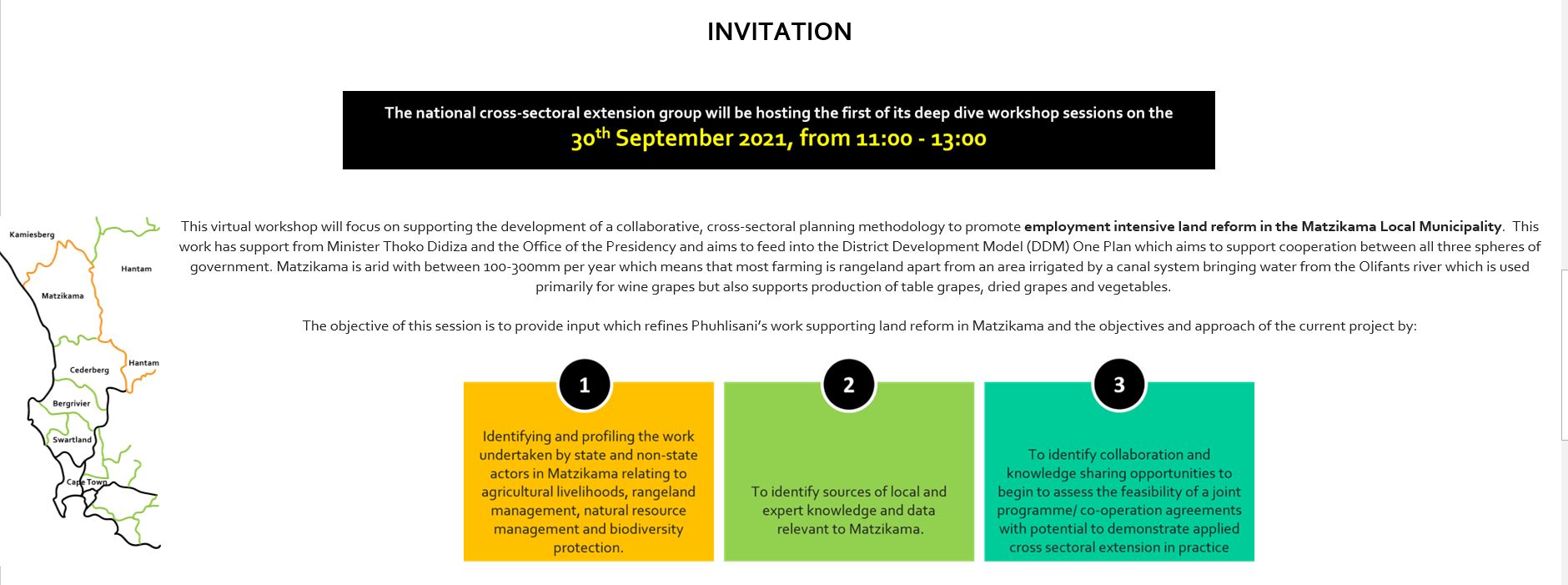 So time to catch up with what has been happening in the project. We have been working with WWF, SANBI and the Department of Environment and the National Cross Sectoral Extension Forum to design a cross-sectoral extension workshop which is scheduled for 11:00 - 1:00 on the 30th September. The workshop which will be attended by people who work across the landscape in different capacities aims to:
Currently we are heads down assembling a draft plan and at the same time preparing a report mapping the local information ecosystem. Summarised progress update on the different project components Component 1: Mobilisation of national government and private sector leadership in support of the project. Effective mobilization at national scale has been limited to date. Our original approach was to make use of the existing FAO-linked VGGT Multiparty Stakeholder Forum. However, this structure has experienced institutional challenges which have contributed to delays and difficulties in organizing regular meetings. Given these constraints our focus is on more strategic and feasible national engagement options. Given the pressure of time to complete the plan on the local level, we have approached the Minister’s delegate in the Department with the aim or organizing a strategic meeting of critical stakeholders comprising either:
Component 2: Local level actor mobilisation and structuring Phuhlisani has twice set about organising a broader social platform meeting of all actors involved in land and agrarian reform within the local municipality. Unfortunately, both meetings coincided with a surge in Covid cases and had to be cancelled due to restrictions on face-to-face meetings in Matzikama. In consequence we have adapted our approach to concentrate on smaller actor clusters, meeting the different actors individually, or in closely focused smaller planning sessions bringing together officials from the Local Municipality, the Provincial Department of Agriculture, Water Affairs and Sanitation white farmers, black farmers, NGOs and agricultural processors. We are organizing a broader online meeting of the platform in the first week of October. However, this meeting will not be optimal as it will exclude the participation of certain non-state actors – particularly the majority of black, as well as some white farmers who lack internet access, data or bandwidth for online conferencing. The cancellation of these broader platform meetings remains a concern, given the whole approach is to obtain commitment to the joint planning process and plan. There is potential that the vaccine rollout and the relaxing of Covid restriction levels may create more favourable conditions for joint actor mobilization at local level in the final phase of the project. Component 3: Status quo analysis A detailed Status Quo report has been completed and distributed in English and Afrikaans. It has also been made available on the project blog. The report will be updated as the project proceeds to include new information obtained through the planning process. Component 4: Planning programme – this will be the bulk of the work that will be undertaken in the project Six planning sessions have been held involving different actors. Two were centralized sessions involved key invited actors (specific farmers, the departments and municipality, certain processors, NGOs. These looked at the irrigated area and then the extensive grazing areas. These were followed by meetings in each of Van Rhynsdorp, Rietpoort, Lutzville/Koekenhaap and Vredendal/Klawer – the proposed sub-plan areas. These meetings refined our understanding of the current need (both for land and for other resources for people already on land), explored suggested options for potential land to be acquired, looked at the criteria and joint structures for allocating land, and more. As noted above Covid has impacted negatively on attendance of these joint face to face planning sessions. In a recent Vredendal/Klawer meeting of the 16 people that had confirmed attendance, 8 were not able to attend as a result of either them or a family member contracting Covid! Key landowners have been engaged about the possibility of making their land available (on a leasehold or ownership basis). These landowners include the mines, Eskom and the Public Works (state). Auditors with knowledge of the local agricultural economy have been approached to help identify potential privately land which could be acquired. The farmers unions are being engaged to find out who may be interested/willing to make land available on a leasehold or other basis. State budgets to acquire or make available access to land and provide support is going to be a critical constraint impacting on the plan, given that the state’s allocation for land purchase has been cut more than 40% for the next MTEF period. This will require creativity and further research to identify alternative ways in which land could be acquired, or made accessible at minimal cost. Access to water further constrains production potential. While in the longer term the area is scheduled to have significantly more water, with the raising of the Clanwilliam dam wall, it is anticipated that the earliest this will only become available will be in five years’ time. In the interim, the municipality is being consulted, together with the local Water Users Association that manages the irrigation scheme, and the Department of Water Affairs and Sanitation, to clarify how part of a large agricultural water allocation in the name of the municipality could be allocated to individuals or groups who currently have access to land, but lack water. Along with water, we are also looking at the various components of infrastructure development; access to funds for new initiatives by farmers (such as the purchase of livestock); developing concepts to provide support for financial and other record keeping; strategic, commodity and marketing advice; and support to farmers when negotiating prices amongst other aspects. Phuhlisani is also cognizant of the District Development Model that is currently being implemented through the country. In the West Coast District this has taken the form of the Joint District and Metro Agreement. Phuhlisani has engaged the district municipal Mayor and Manager in this regard, and we are working with them and the Matzikama municipality IDP manager to ensure alignment. Mapping the information ecosystem, collaborative data management: This focus cuts across all components - documentation, communication and shared learning. The first phase of this process involved a survey sent to the various key actors regarding their data and information management systems. We have had responses from:
We have had valuable interviews with staff at the Provincial Department of Agriculture as well as with DALRRD officials focused on the availability of different sources of data and spatial information relevant to land reform planning, monitoring, evaluation and learning. These interviews has greatly improved our understanding of the different types and sources of data available. We hope soon to be engaging with officials within the Western Cape government tasked with strategic information management to find ways to connect the different data sets and discuss the design of shared systems for data curation, access and use. The Western Cape Government: Department of the Premier (DotP) and the Department of Rural Development and Land Reform (DRDLR) have identified the need for a co-ordinated spatial information forum in the Western Cape. The forum focusses on Spatial Information and Spatial Data Infrastructure within the Province. The Western Cape Spatial Information Forum (WCSIF) promotes the sharing of spatial information within the Province and between the three spheres of government through collaboration and co-operation. We are developing a detailed mind map which collates the different sources of spatial and other data of relevance to land reform planning in the local municipality. This will form a central part of the information needed for the manuals that will be written up at the end of the project to guide further land and agrarian planning initiatives in other districts. Finding out fastSo if you have ventured a look at our full status quo report you will have seen that it is a document not for the faint hearted - weighing in at well over a 100 pages. So we have extracted the highlights in two more accessible summaries. Section 1 Section 1 provides a brief background of the origins of the current CBPEP, EU funded land reform planning initiative in Matzikama Local Municipality. It examines the evolving approaches to area-based planning and the emergence of the current district development model. Section 2 Section 2 provides a detailed overview of land and water in Matzikama. It details a variety of different land types Section 3 Section 3 highlights some of the impacts of drought and Covid 19 on agriculture, employment and livelihoods in the local municipality. This summarises key findings presented in a more in-depth report which is contained in an annexure. Section 4 Section 4 contains rich insights into what is actually happening on the land, as it sets out to profile smallholders and other larger scale black farmers active in the local municipality. Section 4 provides the foundation for the planning process, helping us to develop a detailed profile of farmers in different settings who have different needs.
Section 5 Section 5 examines different forms of state support to farmers and provides information on land reform budgets and state capacity to provide support. Section 6 Section 6 highlights preliminary findings from a survey seeking to identify current sources of data and information on land, water and agriculture in Matzikama. You can download PDF files by clicking on the links below: Afrikaans summary English summary Download our SQ reportVersion 1.2 of our status quo report on land and agriculture in Matzikama Local Municipality is now available for download. We have taken steps to anonymise those interviewed to protect personal information and a draft of the report has been been circulated to key actors for approval prior to public release.
As noted in the previous post we still have some significant gaps to fill - particularly information from the National Department of Agriculture, Land Reform and Rural Development which is still outstanding. We will soon publish an updated version of the report which will be augmented by explanatory maps and other data elaborating on commodity value chains, cellars and processors in the Local Municipality. |
Phuhlisani NPCPlanning Pilot facilitator Archives
June 2022
Categories |

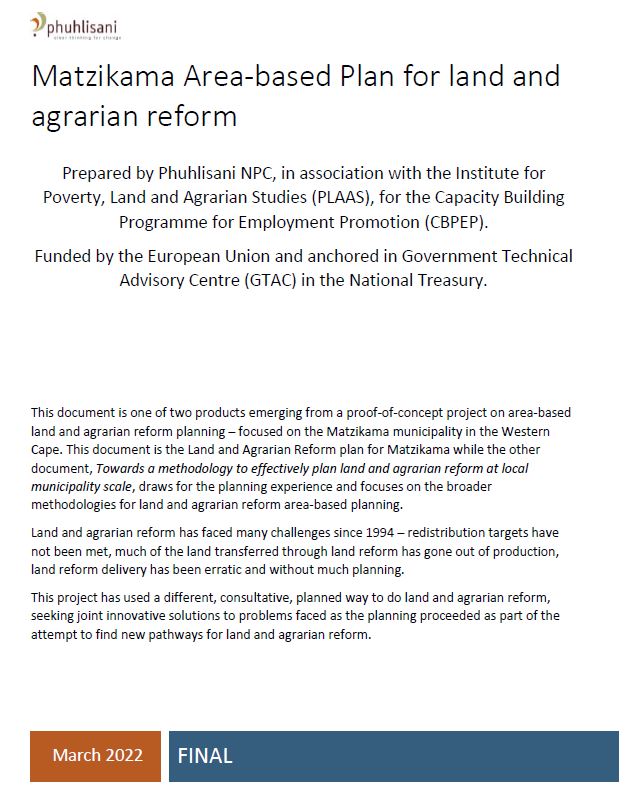
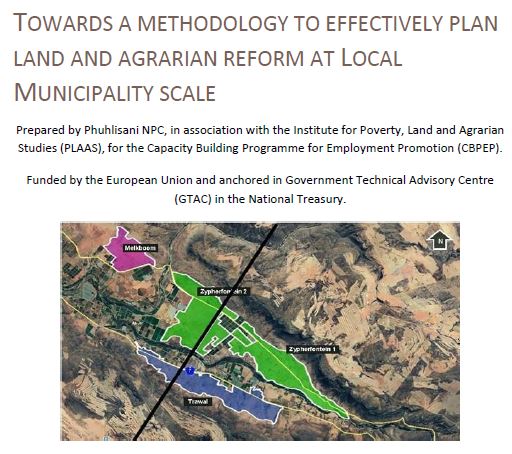
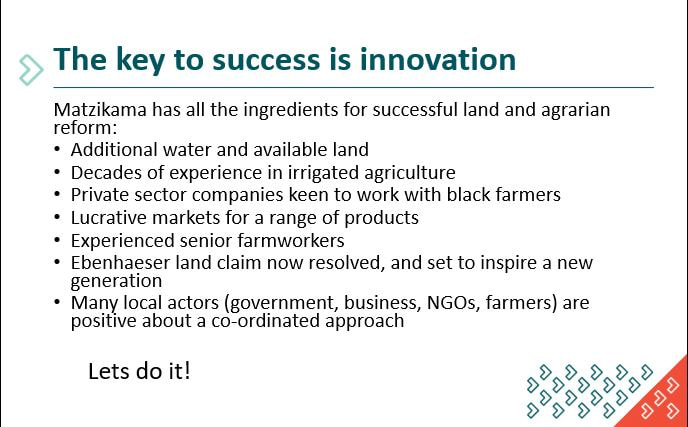


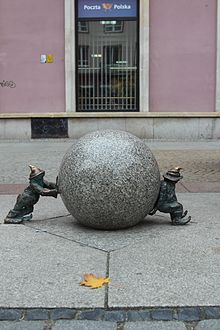
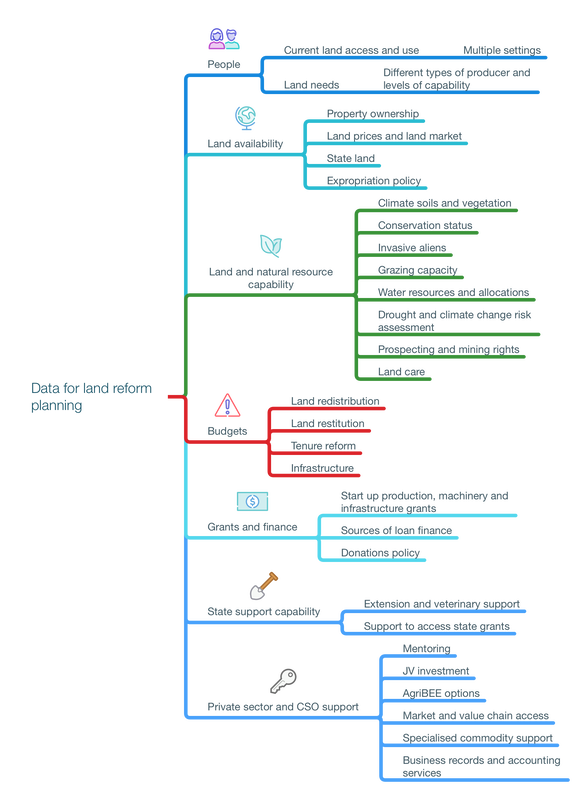
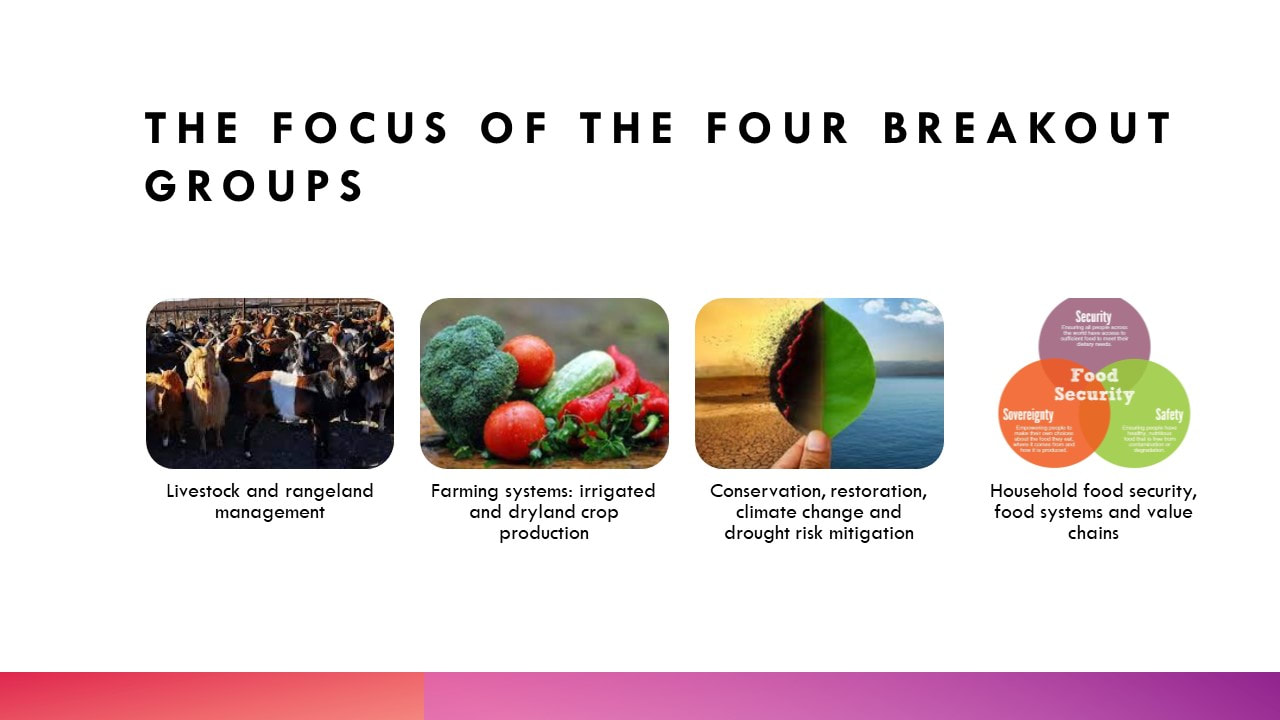
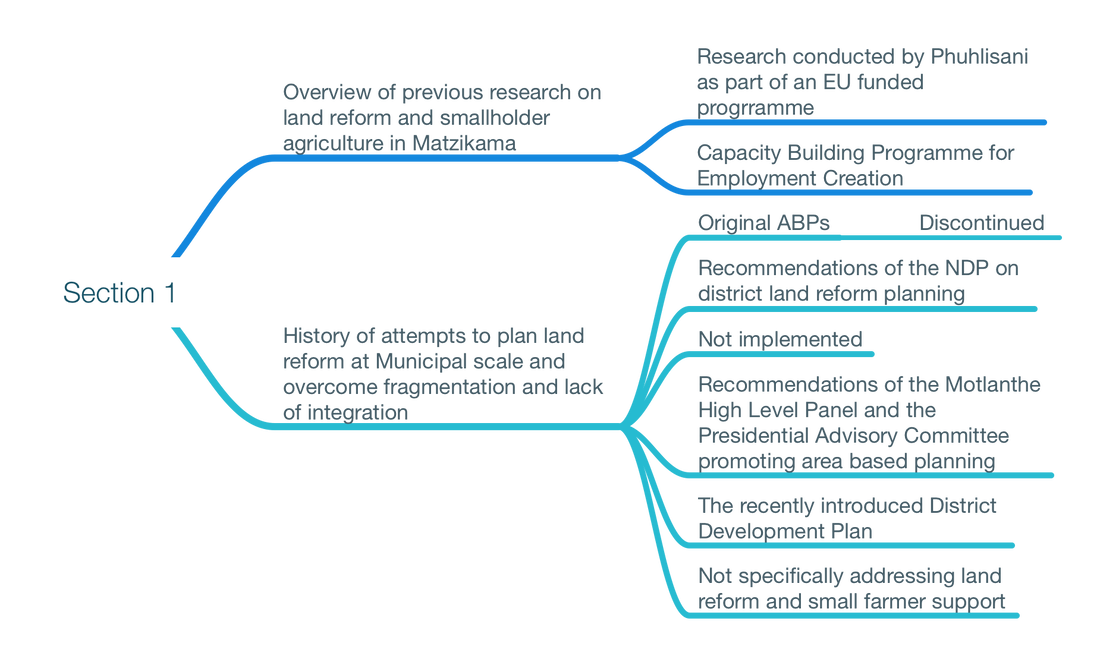
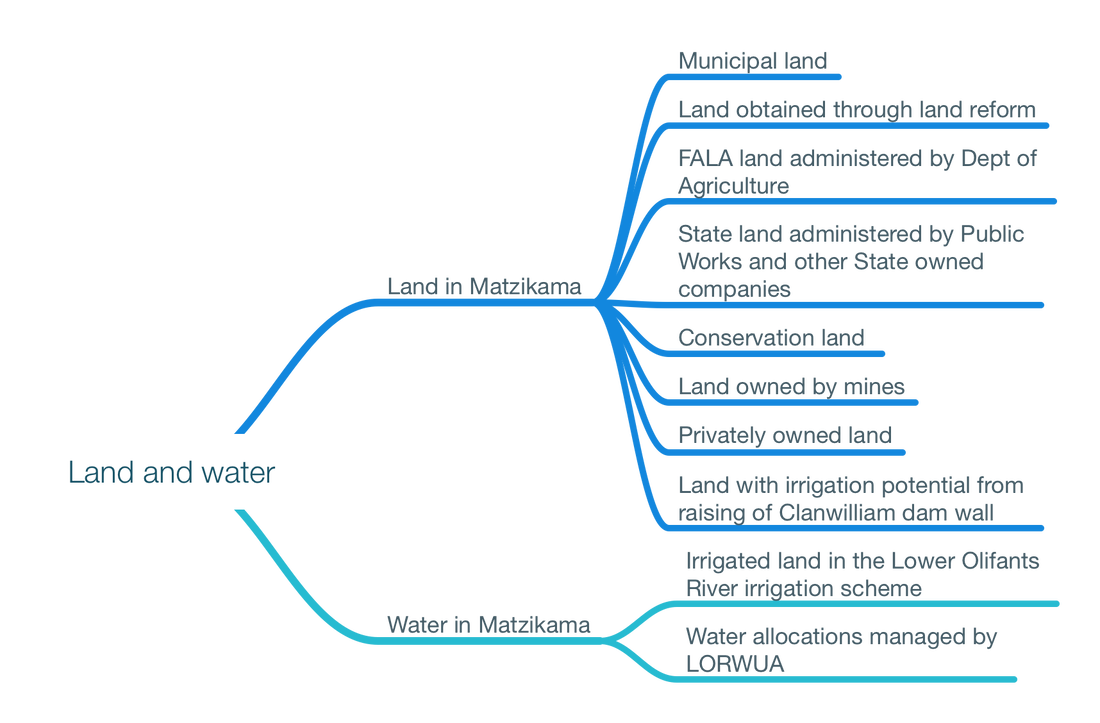
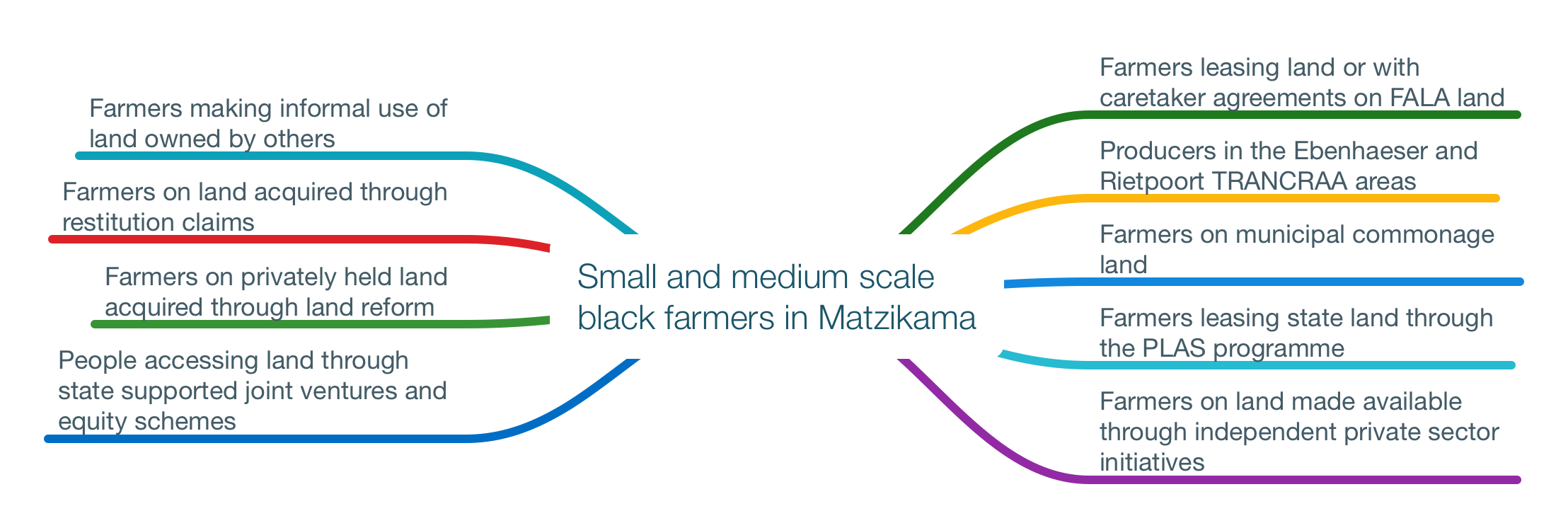
 RSS Feed
RSS Feed
